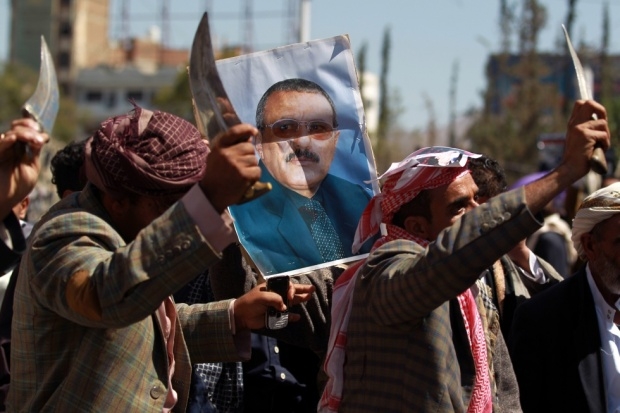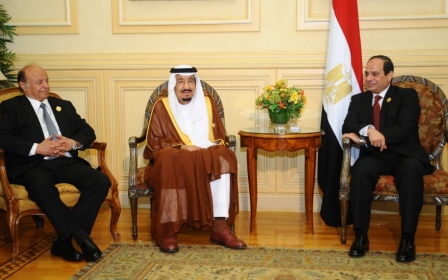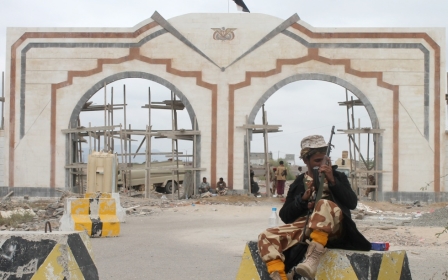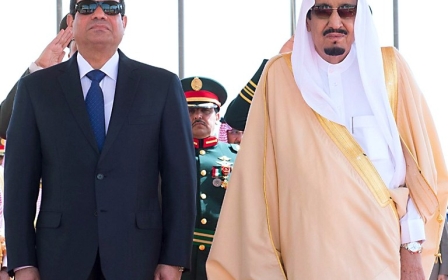38 killed as Yemen tribes clash with Houthi-Saleh rebel forces

At least 38 people were killed on Sunday in clashes between rebel forces and tribes near a southern oil region, AFP reported.
The fighting erupted when tribesmen attacked positions held by Houthi rebels near the oil-rich area of Usaylan in Shabwa province, the sources said.
"The Houthis and their allies (troops loyal to ex-strongman Ali Abdullah Saleh) have lost 30 of their men in fighting that killed eight tribesmen," the security official said.
Tribal sources confirmed the toll.
Earlier a tribal source told the Anadolu Agency that "clashes between armed tribesmen and Houthi militants in the Usaylan district of Shabwah have led to the death of 40 Houthi militants and two tribesmen."
Houthis transported their casualties by vehicles to the adjacent Al-Baydaa province, the source said.
The source went on to note that armed tribesmen are making "significant advances in the ongoing battle with Houthis, which is taking place on several fronts in Usaylan."
Army units loyal to ousted President Ali Abdullah Saleh – in alliance with the Houthis – are waging attacks on pro-Hadi forces as well as militants affiliated with the country's southern separatist movement.
Saudi Arabia and Arab allies, meanwhile, have been pounding Houthi positions across Yemen since Wednesday.
Saudi Arabia said the anti-Houthi campaign was in response to appeals by Hadi to "save the people [of Yemen] from the Houthi militias."
Houthi threaten suicide bombings in Saudi Arabia
Meanwhile, a senior member of the Houthis Executive Committee threatened on Saturday to carry out suicide bombings in Saudi Arabia if Riadhy continues with its airstrikes.
"If Saudi Arabia continues its aggressions against the oppressed Yemeni people, [Houthi] fighters will pave the way for the Saudi regime's destruction by conducting martyrdom-seeking operations inside Saudi Arabia in the coming hours," Abdel Mon'em Al-Qurashi to Iran's Fars news agency.
Arab coalition warplanes targeting the Iran-backed rebels bombed the runway at the Yemeni capital's international airport and killed 15 pro-rebel troops elsewhere in Sanaa, military and aviation sources said Sunday.
On the fourth night of raids against Shiite rebels and allied troops loyal to former strongman Saleh, Saudi-led strikes paralysed the airport in the rebel-controlled capital.
"This was the first time they hit the runway" since the campaign began, an aviation source said, a day after UN staff were evacuated from Sanaa. "The airport is completely out of service," he said.
Witnesses reported hearing three loud explosions and seeing a large fire when the air facility was hit around midnight (2100 GMT Saturday).
Air strikes also targeted an airbase in rebel-held Hudaida, in western Yemen, witnesses said, as part of efforts to destroy air defence capabilities.
Other raids targeted a base of the First Artillery Brigade in Saada, the northern stronghold of the Houthi Shiite rebels.
Yemen FM rules out Houthi talks until they withdraw
Meanwhile, Yemen's foreign minister on Sunday ruled out any dialogue with the Houthi militia until President Hadi's government retakes full control of the country.
Foreign Minister Riyadh Yassin said there could be "no negotiations and dialogue until the legitimate government has control over all Yemeni lands".
"Any party that wants to talk about dialogue has to first give up weapons seized from bases and return them to the state," he told Egyptian state television in an interview.
Arab League chief Nabil al-Arabi said on Sunday the Saudi-led offensive in Yemen will continue until the Houthi Shiite rebels "surrender" their weapons and withdraw from the areas they seized.
The "operation will continue until the Houthi militia withdraws and surrenders its weapons," Arabi said at the start of the second day of a summit in the Egyptian resort town of Sharm el-Sheikh.
Yemen's President Hadi had attended the first day of the summit, calling for the offensive to continue until the Iran-backed rebels surrender.
Analysts warn if the conflict in Yemen drags on it would worsen the security of the whole region.
'Iran is fighting Arabs on their own land'
London-based Palestinian commentator Abdel Bari Atwan wrote in an op-ed that the Saudi airstrikes are counterproductive and that the alternative to a political solution to the Yemeni crisis would be an "all out regional sectarian warfare."
"Iran is fighting Arabs on their own land, rather than on Iranian soil, its human and material losses are limited, while Arab losses multiply," Atwan wrote in the Rai al-Youm daily.
The call for a negotiated solution was echoed by prominent Yemeni cleric Habib al-Jifri, who urged the Houthis to back down and spare Yemeni blood from sectarian infighting, allegedly incited from Tehran.
At a demonstration outside the Saudi embassy in London on Sunday, Yemenis living in the UK gathered to express their opposition to the airstrikes, which they said threatened to ignite sectarian tensions in Yemen.
Many observers also fear the strengthening of al-Qaeda who has long sought to fill power vacuums in the country.
The fear of al-Qaeda is nowadays being eclipsed by the prospect of the possible rise of Islamic State (IS) militants in Yemen after they claimed suicide bombings that killed over 140 people last week.
IS supporters had taken to social media to mock the Saudi-led airstrikes as insincere and ineffective, accusing Riyadh of handing the region to Iran.
Meanwhile, the Houthi militiamen have reportedly released 1,800 prisoners who have committed minor crimes across the country.
New MEE newsletter: Jerusalem Dispatch
Sign up to get the latest insights and analysis on Israel-Palestine, alongside Turkey Unpacked and other MEE newsletters
Middle East Eye delivers independent and unrivalled coverage and analysis of the Middle East, North Africa and beyond. To learn more about republishing this content and the associated fees, please fill out this form. More about MEE can be found here.




